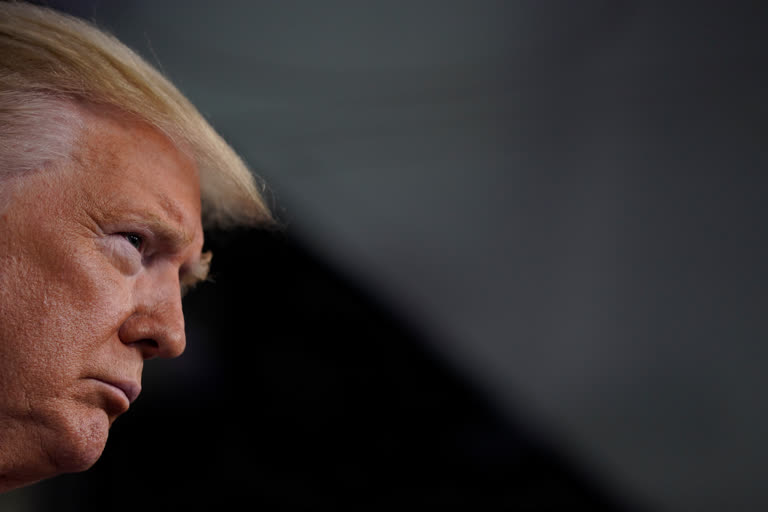New York: Signalling dire economic prospects, the bellwether stock market index has surrendered almost all of the strong gains it had made since US President Donald Trump took office even as he signed into law a bipartisan relief package estimated at USD 100 billion passed by Congress to support the economy.
White House and Congressional leaders were already at work on Wednesday on the next relief package estimated to cost USD 1 trillion with support for businesses and cash payments to people to tide over the crisis.
On a gloomy Wall Street unmoved by the efforts to shore up the economy, the Dow Jones Industrial Average plunged 6 percent to 19,898, barely above the 19,827 recorded on January 20, 2017, when he was sworn in.
It had reached its peak just about a month ago before the full import of the pandemic struck, recording 29,551 on February 12.
The financial research company S&P Global had warned on Tuesday that the US was entering a recession, if not already in it, with the economy likely shrinking by one percent in the first quarter and by more in the next.
In a signal of the coronavirus-driven slow down of the economy, automakers Ford, General Motors, Fiat Chrysler, Toyota and Honda said on Wednesday that they were shutting down all or some of their plants in the US affecting about 2,00,000 workers.
Across the US, tens of thousands of workers in the service sector have been hit hard by the closures or cutbacks by hotels, travel and entertainment sectors and the restrictions on restaurants and malls.
The New York Stock Exchange which prides itself as the world's premier bourse announced that from next week its iconic trading floor will empty when it switches to electronic trading after two traders were found to be infected by the disease.
Read Also: Indian-origin researcher Arinjay Banerjee among scientists who isolated COVID-19 virus strain
The relief package that Trump signed on Wednesday had been passed by the Democrat-controlled House of Representatives with bipartisan leadership support last week and sailed through the Republic-majority Senate on Wednesday.
However, it received eight negative votes from right-wing Republicans who ignored Senate Republican leader Mitch McConnel's plea to vote for it in a bipartisan spirit.
It includes unemployment benefits, sick leave, free testing for coronavirus, medical benefits and food aid for those affected by the pandemic.
The next phase relief package estimated at USD 1 trillion that Treasury Secretary Steven Mnuchin is negotiating with Congressional leaders is expected to provide for two installments of direct cash payments totaling about USD 2,000 each and support for business and airlines.
"We want to take care of -- we have to help everybody; it was nobody's fault, that the economic crisis has come up, Trump said.
Trump sounded optimistic about the prospects for the relief program getting through Congress.
He said at his news briefing, "They've been getting along very well, Republicans and Democrats. It's a nice thing. Very bipartisan so far."
But Democratic Party leaders have opposed bailouts of large corporations.
Senate Democratic leader Chuck Schumer said on Tuesday, "Our major focus cannot be based on bailing out airlines, cruises and other industries."
He said that it should be oriented to the needs of the people by fixing the unemployment and health systems and helping cash-strapped small and medium businesses.
"Corporations are not people. People are people."
Read Also: No new coronavirus cases for first time in China
(With inputs from IANS)



